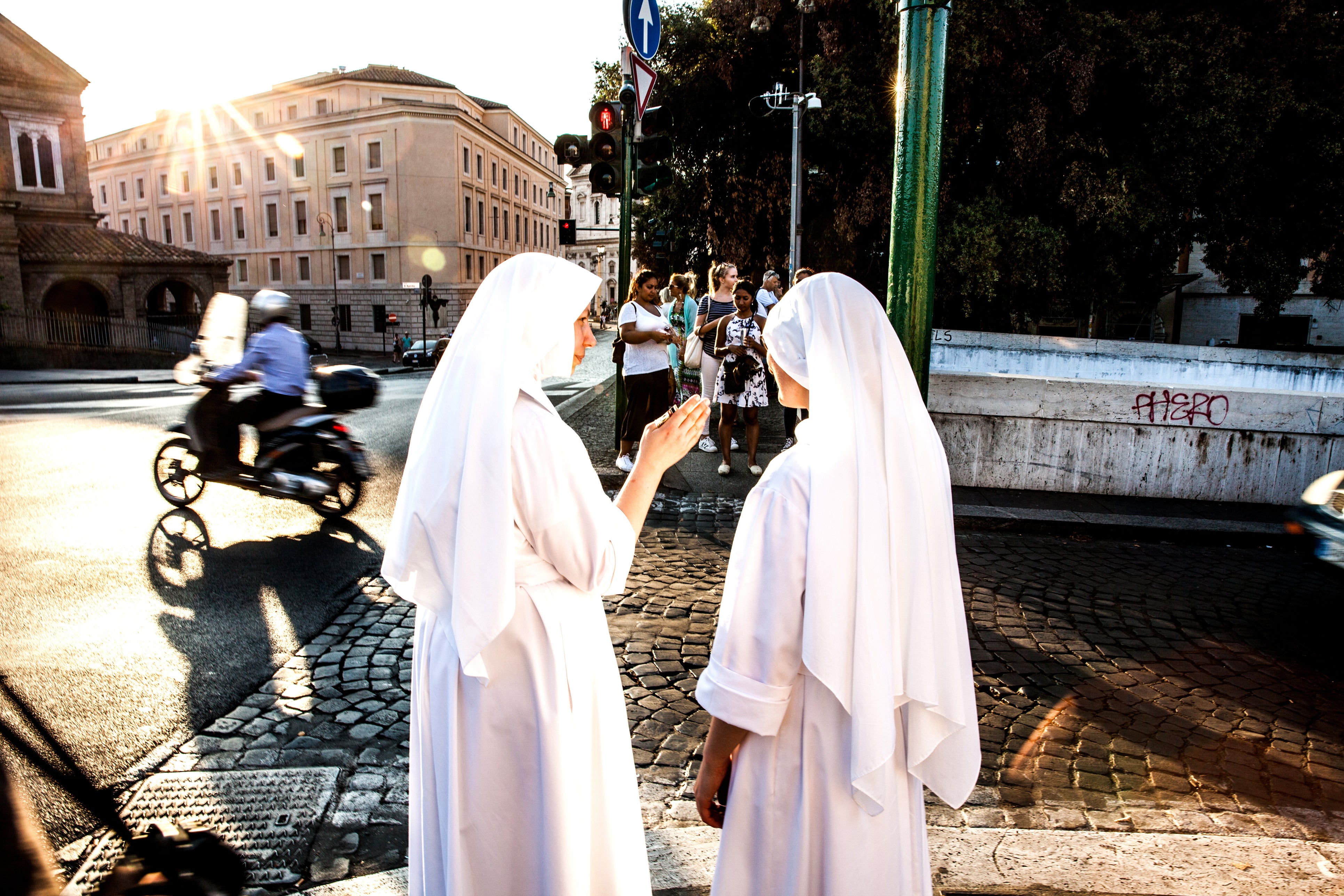Is same-sex supporting Pope the tipping point for the future of the Catholic Church?
He wants to put more women in roles at the Vatican, protect migrants and has compassion for gay marriage. Pope Francis might be seen by many Catholics as the most progressive pontiff yet, writes Catherine Pepinster, but there’s a danger of schism between moderates and modernisers as the biggest Synod for decades starts this week...


It is one of the most famous comments ever made by Pope Francis, said soon after he was elected pontiff in response to a reporter’s question about attitudes towards gay people: “Who am I to judge?”
It was one of the first signs that this would be a different pope, one who would try and understand more and condemn a little less. Now, on the eve of the biggest gathering of Roman Catholics in decades, Francis has gone further, telling cardinals who asked him for clarity, that any request for a same-sex blessing should be treated with “pastoral charity”.
“We cannot be judges who only deny, reject and exclude,” he said.
Such remarks will hardly reassure the Pope’s sternest conservative critics who have been vocal and intemperate throughout his pontificate. But for the 400 delegates to the Synod starting 4 October in Rome, it sets a tone for a gathering – a tone of a more compassionate Catholic Church – and indicates that change could be happening.
Ever since Francis was elected in 2013, he has been trying to reform the Catholic Church, not so much by changing doctrine but its function and tone. He has been trying to get local churches to have more say; he’s appointed women to roles in the Vatican; there have been efforts to tackle child sexual abuse by priests. He wants more compassion – the Church should be a field hospital, there to bind up people’s wounds, he says. He is the green pope, putting the climate crisis at the top of his ethical concerns. He is home secretary Suella Braverman’s worst nightmare, constantly calling on governments to do more for the huge numbers of migrants crossing the Mediterranean from Africa and the Middle East.
Preparations for this Synod began two years ago, with Catholics around the world engaged in a huge listening exercise, surveyed for their opinions. In the past only bishops have voted at a synod but this time lay Catholics will do so too, although still outnumbered by clerics. The English Dominican friar, Timothy Radcliffe, chosen by Pope Francis to address Synod attendees on its eve, called his talk Hoping Against Hope. Radcliffe self-deprecatingly began by saying “I am old – white – a Westerner – and a man! I don’t know which is worse!”
The Catholic Church may still be huge, with more than 1.3 billion members across the globe, but in its old heartland of Western Europe, many have turned their backs. Something needs to change, and women in particular are urging that the Synod should be a starting point. They are certainly vital to the life of the Catholic Church, serving as nuns, running many of its schools and raising the next generation. But in a Church that still insists on a male priesthood, many women feel powerless. Many have had enough of the old approach to the laity: pay, pray and obey.
Just to make sure they are taken seriously, women are not only participating in the Synod but leading Catholics have also organised what could be called an alternative Synod. Called Spirit Unbounded, its keynote speakers include former Irish president Mary McAleese who has warned the cardinals that today there is “a highly educated laity capable of critiquing church teaching”. And among their frustrations, according to another keynote speaker, Cherie Blair, is that “The Church does not do enough for women ... its structures and teaching on matters such as birth control and its priorities do not always serve women well,” she will say.
Another group that is well organised at the Synod are gay Catholics who have also made submissions to the Synod, looking for more understanding and a far less harsh Catholic approach to gay relationships – and they already seem to have an indication of a major shift, given Francis’ comments to the cardinals.
The difficulty, both for women and gay Catholics, and indeed for Francis, are those conservative Catholics who try to derail the current Pope’s way of doing things. Their attitudes were evident at the 2019 Synod about the Amazon, where traditionalists threw indigenous statues into the Tiber, saying they were idolatrous. They not only object to Francis’ efforts to encourage discourse and his efforts at reform, but object to what they see as his dabbling in politics, from his speaking out on migrants to his focus on the environment.
No doubt they will be critical of the opening of the Synod coinciding with Francis’ publication of his second teaching document on the environment. Laudato Deum will follow on from his previous green document, Laudato Si’, published in 2013. It will highlight how the planet has reached a tipping point. And this Synod, too, will be a tipping point, for the future of the Catholic Church – to find some way of repairing its divisions, to fully engage lay Catholics and to offer meaning to a troubled world.
Catherine Pepinster is a former editor of ‘The Tablet’




Join our commenting forum
Join thought-provoking conversations, follow other Independent readers and see their replies
Comments